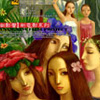Kids speak universal truths
By Qiao Zhengyue (Shanghai Daily)Updated: 2007-07-05 10:04

Seldom has a fairytale like "Le Petit Prince" captivated so many grown-up hearts. Now a French musical based on this fable will be staged in town next month with most of the original cast - and a new prince, this time a girl.
The musical by composer Richard Cocciante ran at the Casino de Paris from October 2002 to January 2003 with Canadian singer Daniel Lavoie playing the pilot.
In the Shanghai production, the pilot-narrator is played by Laurent Ban, who played the Conceited Man in the original production. He also starred in the French-language productions of "Les Miserables' and "Phantom of the Opera."
This time the Little Prince is played by a 19-year-old girl, but producers are keeping her name and that of her understudy secret until the last minute.
There will be subtitles in English and Chinese. An elaborate stage setting and melodic French songs revive the fairytale world of the otherworldly but very true-to-life little prince. All the lyrics are faithful to the original lines in the novel, published in 1943.
"Le Petit Prince" ("The Little Prince") is French aviator Antoine de Saint-Exupery's most famous novel, which he wrote in the United States while renting the Bevin House in New York on Long Island. The novel includes a number of Saint-Exupery's charming drawings, which are reproduced in most versions.
On the surface a children's book, it shows how different adults are from children. In the story pilot Saint-Exupery tells of his being downed in the Sahara Desert, thousands of kilometers away from human habitation - there he meets a young extraterrestrial prince.
The little prince lives alone on a house-sized asteroid, B612, which has three volcanoes and a rose. He spends his days tending for his vulnerable flower, while pulling out the baobab trees that are constantly trying to take root.
One day he leaves to see what the rest of the universe is like, and visits several other asteroids (numbered from 325 to 330), each of which is inhabited by an adult who is foolish in his own way, such as the drunkard/tippler who drinks to forget that he is ashamed of drinking and the businessman who is always busy counting the stars he thinks he owns.
He also meets the King, Conceited Man, Lamplighter and Geographer, all with their own flaws. He then meets and tames a fox, who explains to the prince that his rose is unique and special, because it is the one that he loves.
In the conversations between the prince and the fox, the author reveals his own views about the follies of mankind and the simple truths that people seem to forget as they grow older.
"As many say, the fable tells the love story between the little prince and his rose. I think the meaning of the book is so much deeper than love," says translator Ma Zhencheng, who first translated the novel into Chinese more than 20 years ago. "The rose symbolizes not only love, but also everything that you are devoted to, such as your home, your nation, the earth and civilization. I've read and translated other novels by Saint-Exupery, which seldom focus on romance between man and woman but on broader love of the mother and homeland.
"Saint-Exupery's language is simple and clear, but it reaches the most important problems of human beings," Ma adds. "The six planets that the little prince has visited represent the characters and living conditions of human beings - greed, vanity, power, addictions, possession of useless things and the increasingly speeding pace of life. And today history has proved his writings and worries true."
Date: July 11-23, 7:15pm
Venue: Shanghai Oriental Arts Center, 425
Dingxiang Rd, Pudong
Tickets: 180-1,600 yuan
Tel:
962-288
|
|
|
||
|
||
|
||
| Eating out:
Not quite Bellissimo
Bars&Cafes: Grape news Weekend&Holiday: The best beats Shopping: Chinese made delicacy What's on: Kids speak universal truths |

